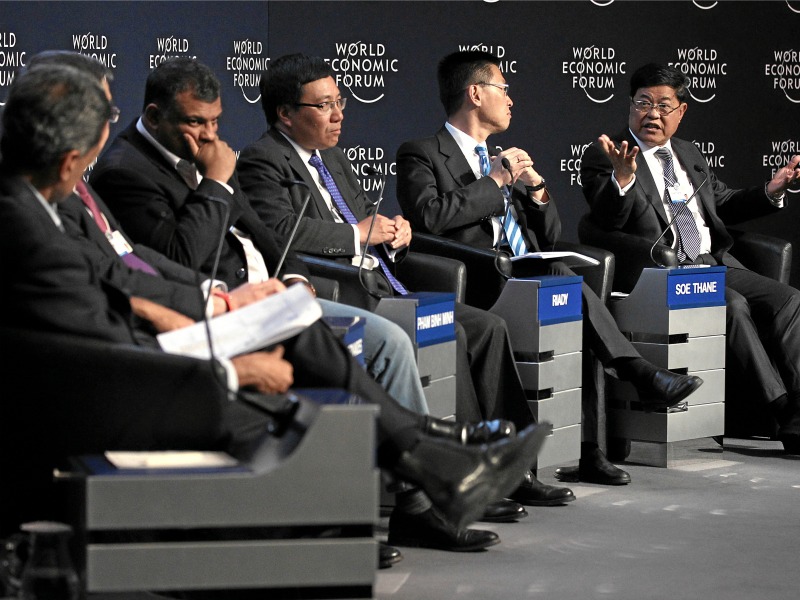MSL 23 Jan 2015 // 8:00AM GMT

The annual Davos meeting gets more international every year, reflecting the unrelenting trend towards globalization. It has recently attracted more and more high-profile speakers from Asia. Last year, Japanese Prime Minister Abe made global headlines when he highlighted the regional conflict with China as a top global risk. But overall, voices and messages from Asia still tend to be underrepresented.
Out of 350 speakers this year, less than 50 are from Asia, while Western Europe alone sent more than 110 speakers, as did the U.S. as a single country. The highest profile speaker from Asia was China’s premier Li who spoke about slowing economic growth in China. He coined the term “new normal” and succeeded in convincing his global audience of China’s commitment to a strict reform course.
Interestingly, the only Asian business executives with their own sessions were also both from China: Alibaba Group’s lead founder Jack Ma, and Huawei Technologies CEO Ren Zhengfei (the only other Asian being India’s finance Minister Arun Jaitley).
It is of course a good thing that Asia doesn’t have any conflicts as pressing as those in Syria or Ukraine. But in terms of trends, visions and solutions Asia has a lot more to offer the world than its Davos presence and engagement would suggest.
There are several reasons why Asian leaders communicate less - and often less powerfully - than their Western counterparts in Davos. For a start, Asian group-oriented societies tend to bring less charismatic individuals to the fore (Jack Ma being the exception, not the rule). In the absence of a powerful civil society in Asia, there are also fewer Asian NGOs speaking up.
The lack of regional institutions is another reason for the dearth of coordinated positioning and messaging. In this regard, even the success story of ASEAN is no match for the EU, whose representatives are front, left and center in Davos.
The conclusion is simple: Asian players, be it governments, companies or other institutions, have a huge opportunity to make an impact at Davos, because there is less regional competition. They simply need to sharpen their tools and messages in a strategic way.
Western players would be well advised to continue engaging with their Asian counterparts at Davos, which arguably provides the best global stage to do so. The Davos organizers know this very well and will continue to provide this platform. In the end, it’s is called the World Economic Forum - and Asia is where the global economic growth is.
Jochen Legewie heads CNC Japan, MSLGroup’s strategic communications advisory in Tokyo, and also serves as MSLGroup’s Asia practice leader for corporate communications and reputation management.


































.jpg)















